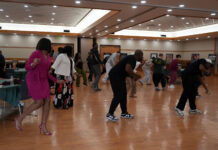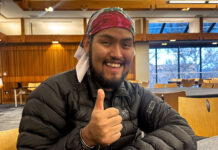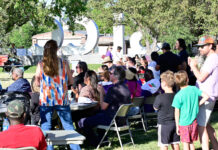On Dec. 5 at the Taylorsville Redwood Campus, Salt Lake Community College will celebrate the scientific contributions of Henrietta Lacks, an African-American woman whose cancer cells were the source of the “HeLa” cell line. Richard Ferguson, M.D., will be the event’s keynote speaker.
The HeLa cell line, obtained in 1951 during the treatment of Lacks’ cervical cancer by Dr. George Otto Gey at Johns Hopkins Medicine, is extraordinary for its ability to multiply extensively. In addition to cancer research, the cell line has been used for the polio vaccine as well as tuberculosis and HIV research.

During a time when HIPAA laws were not yet established and consent was not considered necessary, Johns Hopkins distributed the HeLa cell line to various research institutions. While they did not receive any payment for doing so, they also did not obtain consent from Lacks or her family. Today, however, Johns Hopkins works closely with Lacks’ family to acknowledge and honor her.
Assistant professor of biotechnology at SLCC, Courtney Fenlon, said teaching the ethics of science is essential.
“I think it’s really important to talk to the students about the ethics of science in general,” Fenlon said. “A lot of our students are going into healthcare, and back when Henrietta was a patient, we didn’t have consent [or] HIPAA. I think it’s really important to bring to light … these controversial topics so they can think about [them] and understand those different perspectives and the different types of ethical situations they may encounter later on.”

Film major David Sanders will host the event. For Sanders, hosting the event is rather personal, as he shares two connections with the life of Lacks.
“I’m a colon cancer survivor learning how to live with cancer,” Sanders said. “I met the story of Henrietta Lacks in June 2011 when I was treated for cancer, and it gave me such an uplift when I found out she was from my neighborhood in Baltimore.”

Sanders recounted that the 1950s were a much different time for people of color, especially in the sector of medicine pertaining to Lacks.
“We were from district seven in Baltimore County. The community was founded for housing for Negros who worked at the shipyard, where Henrietta Lacks’ husband worked,” Sanders explained. “The contrast to other districts was startling. We were isolated, segregated and impoverished and had to be self-sufficient … Johns Hopkins was founded to provide anyone with healthcare. She would have been in the segregated ward at Johns Hopkins.”
SLCC’s Student Services and STEM Learning, as well as the Huntsman Cancer Institute, all played a role in making next week’s event possible. The event will take place at the Student Event Center from 11 a.m.–6 p.m.





